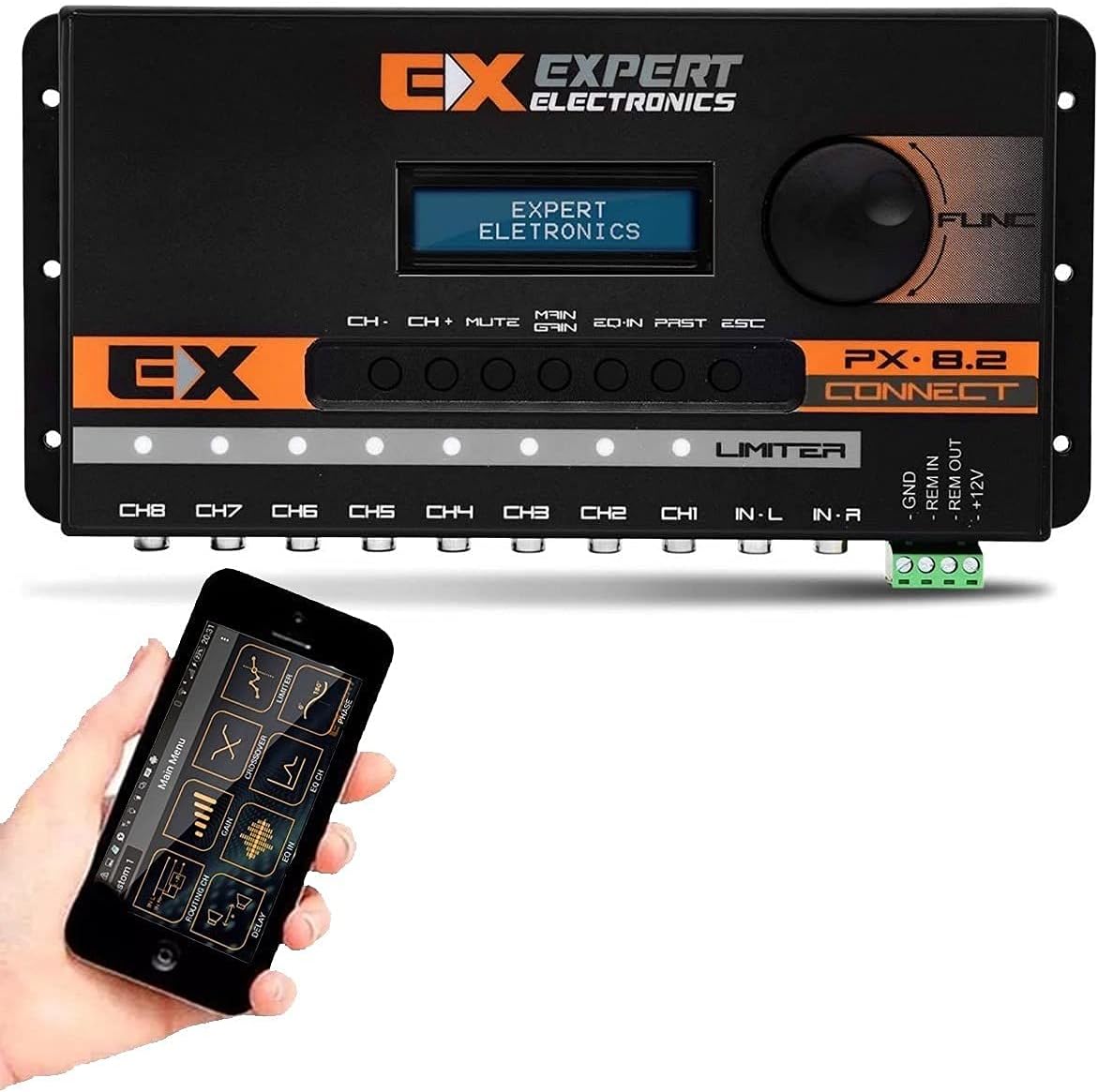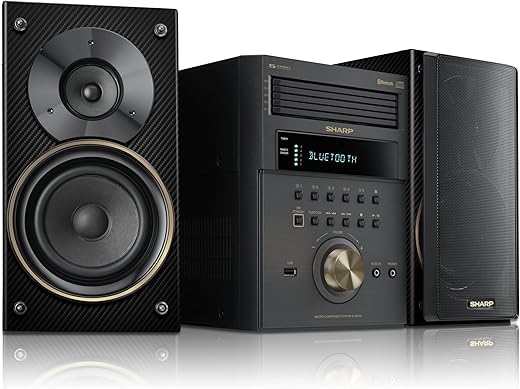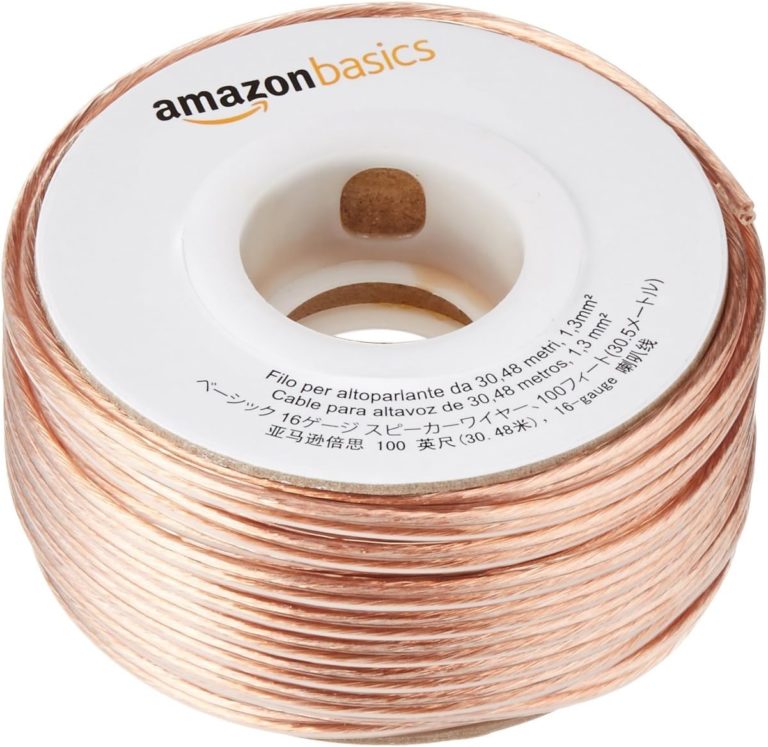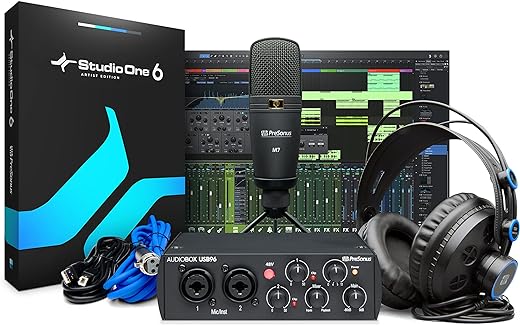How to choose the right audio processor for your needs?
Are you looking for guidance on selecting the perfect audio processor for your specific requirements? Our step-by-step guide titled “How to choose the right audio processor for your needs?” is here to help. This guide is designed to provide you with a concise overview of the process, ensuring that you can make an informed decision and find an audio processor that suits your needs seamlessly. So, let’s get started on your journey to finding the ideal audio processor for you.
Top-selling audio processors of the year
Understand your audio processing needs
To identify your specific requirements for audio processing, first determine the purpose for which you need an audio processor. Assess whether you require it for recording, mixing, mastering, or live performance. Consider factors such as the desired audio quality, the type of audio sources you will be working with, and any specific features or effects you may need. By clearly identifying your needs, you can choose an audio processor that aligns with your requirements and enhances your audio processing workflow.
Research different types of audio processors
Explore the world of audio processors by researching the different types available in the market. Start by familiarizing yourself with the functions of popular processors like equalizers, compressors, limiters, reverbs, and delays. Gain a deeper understanding of how each processor can enhance your audio processing capabilities and make informed decisions when selecting the right equipment for your needs.
Consider your budget
To establish a budget for your audio processor purchase, start by determining the maximum amount you are willing to spend. Consider the quality and features you require, as these factors can greatly influence the price range. For example, if you are looking for a basic audio processor for personal use, you may have a lower budget compared to someone who requires a professional-grade processor with advanced features for studio recording.
Evaluate the audio processor's features
To evaluate the audio processor’s features, you need to review the specifications and features of different processors. Start by examining the signal-to-noise ratio, frequency response, dynamic range, connectivity options, and control interface. Compare these factors across different models to determine which processor best suits your needs. Take note of any additional features or functionalities that may be relevant to your audio processing requirements.
Read customer reviews and testimonials
Research what other users have to say about the audio processors you are considering. To gain insights into the performance, reliability, and user-friendliness of the products, read customer reviews and testimonials. Look for reputable websites or online marketplaces that provide genuine and unbiased feedback from users who have purchased and used the audio processors. Consider both positive and negative reviews to get a well-rounded perspective. Pay attention to specific features or aspects mentioned repeatedly in the reviews to help inform your decision-making process.
Compare prices and warranties
To compare prices and warranties for audio processors that meet your requirements, follow these steps:
- Research different audio processors that match your needs and preferences.
- Make a list of the processors and their respective prices.
- Check if each manufacturer offers any extended warranties or guarantees.
- Note down the duration and coverage of each warranty or guarantee.
- Compare the prices of the processors, taking into consideration the warranty or guarantee offered.
- Assess the value for money by considering both the price and the warranty coverage.
By following these steps, you can make an informed decision by comparing the prices and warranties of different audio processors that meet your requirements.
Visit a store or attend audio equipment demonstrations
If possible, visit a store or attend audio equipment demonstrations to experience the audio processors firsthand. Assess the sound quality, ergonomics, and overall user experience.
Seek professional advice
- Consult with audio professionals or experts: When seeking advice on audio processors, it is essential to consult with professionals who specialize in audio equipment. These experts can provide valuable guidance and recommendations based on your specific needs and requirements. Reach out to audio engineers, sound technicians, or equipment vendors who have extensive knowledge in the field.
- Share your specific needs and requirements: Clearly articulate your audio processing needs to the professionals you consult with. Explain the type of audio content you work with, the level of processing required, and any specific features or functionalities you are looking for. Providing this information will help the professionals give you tailored advice that suits your unique situation.
- Ask for recommendations and comparisons: Request recommendations for specific audio processors that align with your needs. Ask the professionals to provide comparisons between different models, highlighting the pros and cons of each option. This will help you make an informed decision and choose the audio processor that best meets your requirements.
- Consider seeking multiple opinions: It can be helpful to consult with more than one audio professional to get a range of perspectives and recommendations. Different experts may have different preferences or experiences, so gathering multiple opinions will give you a more comprehensive understanding of the available options.
Remember that seeking professional advice is crucial in making the right decision when it comes to audio processors. By consulting with experts, sharing your needs, and considering multiple opinions, you can ensure that you choose the right audio processor for your specific requirements.
Make your purchase
After thoroughly researching and considering all the factors mentioned above, it is time to make your purchase. To ensure a satisfactory buying experience, it is recommended that you make your purchase from a reputable retailer or manufacturer. Look for well-established companies with positive customer reviews and a track record of delivering quality products. This will help minimize the risk of purchasing counterfeit or substandard items.
Summary and Final Recommendations
In conclusion, choosing the right audio processor for your needs requires careful consideration and research. By understanding your specific requirements, exploring different options, and seeking professional advice, you can make an informed decision. Remember that the audio processor you choose will greatly impact the quality and performance of your audio system. So take your time, gather all the necessary information, and make a choice that aligns with your goals and objectives.
Expert Recommendations
Step-by-step guide to effectively utilize audio processors
- Familiarize yourself with the different types of audio processors available, such as compressors, equalizers, and reverb units
- Understand the purpose and function of each type of audio processor, as they are used to manipulate and enhance various aspects of sound
- Connect the audio processor correctly to your audio source, typically through the input and output jacks
- Adjust the settings on the audio processor to achieve the desired sound effect. This may include adjusting parameters such as threshold, ratio, attack, release, frequency bands, or decay time
- Experiment with different settings and effects to understand how they impact the sound and find the desired outcome
- Monitor the output sound to ensure that the audio processor is achieving the desired effect without any unwanted distortion or artifacts
- Practice and learn from experience to become more proficient in using audio processors effectively
Frequently Asked Questions about Audio Processors
What are some common applications of audio processors in live sound reinforcement?
Audio processors are used extensively in live sound reinforcement to enhance and optimize the quality of audio signals. Some common applications of audio processors in this context include:
- Equalization (EQ): Audio processors are used to adjust the frequency response of the sound system, allowing you to boost or cut specific frequencies to achieve a desired tonal balance.
- Dynamics processing: Compression, limiting, and gating are examples of dynamics processing techniques used to control the dynamic range of audio signals. These processors help to even out the volume levels and ensure consistent sound levels throughout the performance.
- Effects processing: Audio processors allow you to apply various effects such as reverb, delay, chorus, and modulation to enhance the sound and create a more immersive experience for the audience.
- Feedback suppression: Live sound environments can be prone to feedback, which is the result of audio signals being amplified and picked up by microphones. Audio processors with feedback suppression capabilities help to identify and eliminate feedback frequencies, improving overall sound quality and preventing unwanted squealing or ringing.
- Speaker management: Audio processors are used to fine-tune and optimize the performance of loudspeakers. They provide features such as crossover filters, time alignment, and loudspeaker protection, ensuring that the speakers are operating efficiently and delivering the best possible sound.
What are some best practices for using audio processors to achieve optimal audio quality in different scenarios?
To achieve optimal audio quality in different scenarios using audio processors, here are some best practices to follow:
- Understand your audio equipment: Familiarize yourself with the capabilities and features of your audio processors. Read the manuals and learn about the various controls and settings available.
- Set appropriate input levels: Ensure that your audio input levels are balanced and not too high or too low. This helps prevent distortion or noise issues.
- Use appropriate compression settings: Compression can help balance the dynamic range of audio and prevent peaks from clipping. Adjust the compression settings according to the specific scenario and desired effect.
- EQ effectively: Use equalization (EQ) to enhance the frequency response of your audio. Identify problematic frequencies and use EQ to correct them. Be cautious not to overdo it, as excessive EQ adjustments can introduce unnatural sound.
- Maintain consistency: Adjust your audio processors to ensure consistent audio quality across different scenarios. This includes maintaining consistent EQ settings, compression levels, and other relevant parameters.
- Monitor audio output: Regularly monitor the audio output to ensure the desired quality is being achieved. Use high-quality headphones or speakers to accurately evaluate the audio.
- Avoid excessive processing: While audio processors can enhance audio quality, it’s essential to use them judiciously. Avoid applying excessive processing, as it can lead to unnatural or artificial sound.
- Test and refine: Experiment with different settings to find the optimal audio quality for each scenario. Take the time to fine-tune your audio processors based on your specific requirements.
- Stay updated: Keep abreast of advancements in audio processing technology and techniques. Stay updated with firmware updates and industry best practices to maximize your audio quality.













I’ve found that using a combination of hardware and software audio processors can yield great results. While hardware processors often provide better sound quality, software processors offer more flexibility in terms of customization and presets. It’s worth experimenting with both to find the perfect balance for your needs.
Thank you for sharing your experience with using a combination of hardware and software audio processors! You’ve highlighted an important consideration for individuals who want to achieve the best sound quality while also having the flexibility to customize their audio processing. It’s great to explore different options and find the perfect balance that suits your specific needs.
I recently purchased the XYZ Audio Processor and it has completely transformed the sound quality of my home theater system. The clarity and depth of the audio is remarkable. I highly recommend it to anyone looking to enhance their audio experience.
Thank you for sharing your success story with the XYZ Audio Processor! We’re thrilled to hear that it has made such a positive difference in your home theater system. The clarity and depth it provides is definitely one of its standout features. We appreciate your recommendation and hope that others can benefit from your experience as well.
Could you provide some information about the maintenance and servicing requirements for audio processors? It would be helpful to know how often they need to be cleaned or calibrated, and if there are any specific steps or precautions to take to ensure their longevity.
When researching different types of audio processors, one important factor to consider is the number and type of input and output connections. Make sure the audio processor you choose has the right connections for your setup, whether you’re using it for a home theater system or a professional recording studio.